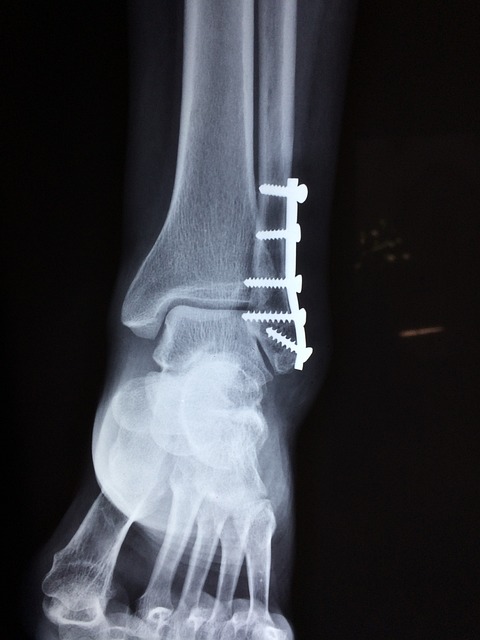Mastering AFib Management: Medications and Strategies
Discover the latest approaches to managing atrial fibrillation effectively. From cutting-edge medications to lifestyle modifications, this comprehensive guide explores the various treatment options available for AFib patients. Learn how to work with your healthcare team to develop a personalized management plan that reduces risks and improves quality of life. Whether you're newly diagnosed or seeking to optimize your current treatment, this article provides valuable insights into mastering AFib management.

Atrial fibrillation (AFib) is a prevalent heart rhythm disorder that requires careful management to prevent potentially severe complications. This article delves into the multifaceted approach to AFib treatment, focusing on both pharmacological interventions and lifestyle strategies.
Navigating the Medication Landscape for AFib
The cornerstone of AFib management often involves a tailored medication regimen. Here’s an overview of the primary drug classes utilized:
- Stroke Prevention Agents:
- Anticoagulants, commonly referred to as blood thinners, play a crucial role in reducing stroke risk. Options include traditional warfarin and newer direct oral anticoagulants (DOACs).
- For some patients, antiplatelet drugs like aspirin may be prescribed, though they’re generally less effective than anticoagulants for stroke prevention in AFib.
- Heart Rhythm Regulators:
- Antiarrhythmic medications such as amiodarone, dronedarone, and flecainide aim to restore and maintain normal heart rhythm.
- Heart Rate Controllers:
- Beta-blockers, calcium channel blockers, and digoxin help manage rapid heart rates often associated with AFib.
Crafting a Personalized Treatment Strategy
Developing an effective AFib management plan is a collaborative process between patient and healthcare provider. Key considerations include:
- The patient’s overall health profile and medical history
- Frequency and severity of AFib episodes
- Coexisting cardiovascular conditions
- Individual stroke risk factors
- Age and lifestyle considerations
Healthcare providers employ various diagnostic tools, including electrocardiograms (ECGs), echocardiograms, and blood tests, to assess the patient’s condition comprehensively. This thorough evaluation forms the foundation for a tailored treatment approach that addresses specific patient needs and minimizes complication risks.
Beyond Medications: Complementary AFib Management Strategies
While pharmacological interventions are often central to AFib treatment, several non-medication approaches can enhance overall management:
- Lifestyle Optimization:
- Maintaining a healthy weight through proper diet and regular exercise
- Implementing stress reduction techniques
- Limiting alcohol and caffeine consumption
- Quitting smoking to improve cardiovascular health
- Sleep Apnea Management:
- Addressing sleep apnea, if present, can significantly reduce AFib episode frequency and severity
- Medical Procedures:
- Cardioversion: A technique using electrical shocks or medications to reset the heart’s rhythm
- Catheter ablation: A minimally invasive procedure creating scar tissue to disrupt abnormal electrical pathways in the heart
Understanding Medication Risks and Side Effects
While essential for AFib management, medications can present potential risks and side effects:
- Anticoagulants may increase bleeding risk, necessitating regular monitoring and dosage adjustments.
- Antiarrhythmic drugs can cause various side effects, ranging from mild (nausea, dizziness) to severe (potential heart rhythm disturbances).
- Rate control medications might lead to fatigue, dizziness, or low blood pressure in some patients.
- Antiplatelet drugs can elevate the risk of gastrointestinal bleeding.
It’s crucial for patients to maintain open communication with their healthcare providers, promptly reporting any unusual symptoms. Regular follow-up appointments and monitoring ensure medication efficacy and safety.
Optimizing AFib Treatment Through Patient Engagement
Effective AFib management hinges on active patient participation:
- Open Dialogue: Regularly discuss symptoms, concerns, and any side effects with your healthcare team.
- Medication Adherence: Consistently take prescribed medications as directed to maintain AFib control and prevent complications.
- Consistent Monitoring: Attend scheduled follow-up appointments and undergo recommended tests to assess treatment efficacy.
- Lifestyle Commitment: Actively implement and maintain recommended lifestyle modifications to support overall heart health.
- Continuous Learning: Educate yourself about AFib and its management to make informed decisions and recognize potential issues early.
By fostering a strong partnership with their healthcare team and adhering to a comprehensive treatment plan, many AFib patients can effectively manage their condition and maintain a high quality of life.
Remember, this article is for informational purposes only and does not substitute for professional medical advice. Always consult with a qualified healthcare provider for personalized guidance and treatment recommendations.




